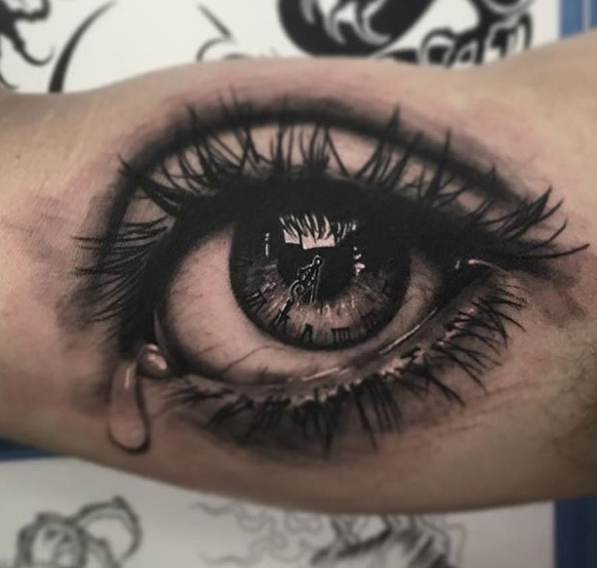Getting a tattoo is an exciting journey of self-expression and creativity. Whether it’s your first tattoo or you’re adding to your collection, preparing for your tattoo appointment is crucial to ensure a smooth and enjoyable experience. Here’s a comprehensive guide on how to get ready for your tattoo appointment, along with some valuable tips and insights on what to expect.
Before the Appointment
Take Care of Your Skin
Hydrate: Proper skin care is essential in the weeks leading up to your tattoo appointment. Keeping your skin hydrated is crucial because moisturized skin takes ink better and heals more efficiently. Start by drinking plenty of water each day. Aim for at least eight glasses to ensure your skin stays hydrated from the inside out. Alongside hydration, using a good quality moisturizer on the area to be tattooed is vital. Moisturizing your skin daily can help it remain supple and ready for the tattooing process.
Avoid Sunburn: Protect the area to be tattooed from sunburn. Sunburned skin is more sensitive and can adversely affect the tattooing process and the final outcome. Make it a habit to apply sunscreen on the area that will be tattooed if you plan to be outside for extended periods. Wearing protective clothing can also help shield your skin from harmful UV rays. If you do get sunburned, it’s best to reschedule your appointment until your skin has completely healed to avoid any complications.
No Shaving: Avoid shaving the area to be tattooed. Your tattoo artist will take care of this step to prevent any irritation or accidental nicks that could lead to infection or affect the tattooing process. Shaving at home can cause tiny cuts and abrasions, which may not be visible but can complicate the tattoo application and healing.

Stay Healthy
Rest: Maintaining good overall health is just as important as skin care when preparing for a tattoo. Getting a good night’s sleep before your appointment is crucial. Being well-rested helps your body handle the stress and potential discomfort of the tattooing process better. Adequate sleep also supports your immune system, aiding in quicker healing.
Eat Well: Eating well is another essential step. Have a balanced meal that includes carbohydrates, proteins, and healthy fats before your appointment. This helps maintain stable blood sugar levels, which can prevent feelings of faintness or lightheadedness during the session. Avoiding alcohol and caffeine before your appointment is also recommended as these can dehydrate your body and affect your skin’s condition.
Stay Hydrated: Staying hydrated is vital not just for your skin but for your overall well-being. Drinking plenty of water helps keep your body and skin in optimal condition. It’s a good idea to start increasing your water intake a few days before your appointment and continue this practice on the day of your tattoo.
What to Bring
ID and Payment
Bring a Valid ID: When it comes to your tattoo appointment, having the right documentation and payment is essential. Make sure to bring a valid ID for age verification. Most reputable tattoo studios have strict age policies and require proof of age before they proceed with the tattoo. It’s always a good idea to call ahead and confirm what forms of identification are accepted to avoid any last-minute surprises.
Know the Payment Methods: Understanding the studio’s payment methods is equally important. Some studios prefer cash, while others may accept credit or debit cards. Ensure you know the preferred payment method and bring enough money to cover the cost of your tattoo, including a tip for your artist. Tips are customary in the tattoo industry and are a great way to show appreciation for the artist’s work.

Comfortable Clothing
Wear Loose-Fitting Clothes: Wearing the right clothing can significantly impact your comfort during the tattoo session. Choose loose-fitting, comfortable clothes that allow easy access to the area being tattooed. For instance, if you’re getting a tattoo on your arm, a short-sleeved or sleeveless shirt is ideal. If the tattoo is on your leg, opt for shorts or loose pants that can be easily rolled up.
Layer Up: Additionally, consider bringing a jacket or blanket. Tattoo studios can sometimes be chilly, and having an extra layer can keep you comfortable during long sessions. If you anticipate being there for several hours, dressing in layers allows you to adjust your clothing as needed to maintain comfort. It’s also a good idea to wear dark-colored clothing, as ink stains can be difficult to remove from lighter fabrics.
Entertainment
Bring Headphones and a Playlist: Tattoo sessions can range from a few minutes to several hours, depending on the size and complexity of the design. Bringing some form of entertainment can help pass the time and distract you from any discomfort. Headphones and a curated playlist are excellent choices. Music can be soothing and help you relax.
Consider a Book or Tablet: If music isn’t your preference, consider bringing an audiobook, a podcast, or even a movie or TV show downloaded on your tablet. Keeping your mind occupied can make the time fly by and reduce anxiety or restlessness. Engaging in light conversation with your artist, if they’re open to it, can also be a great way to stay relaxed.
During the Appointment
Stay Calm and Relaxed
Deep Breaths: Nervousness is a natural response, especially if it’s your first tattoo. However, staying calm and relaxed can make the process much smoother. Deep breathing techniques can be incredibly helpful. Practice taking slow, deep breaths to help calm your nerves. Visualizing a positive outcome and focusing on the excitement of getting your new tattoo can also shift your mindset from anxiety to anticipation.
Trust the Environment: Trust that you are in a professional environment where your artist has your best interests at heart. Many tattoo studios are designed to be relaxing and calming spaces, so take in the ambiance and let it soothe your nerves.
Communicate with Your Artist
Speak Up: Open communication with your tattoo artist is key to a successful session. Don’t hesitate to express any concerns or discomfort you might have during the process. If you need a break, feel faint, or are experiencing significant pain, let your artist know immediately. They can adjust their technique or provide advice on how to cope with the discomfort.
Discuss Your Design: Discussing the design and placement thoroughly before the session begins is also crucial. Make sure you’re entirely satisfied with the design, size, and location of your tattoo. If you have any last-minute changes or questions, bring them up before the tattooing starts. Your artist wants you to be happy with the final result and will appreciate your input.
Trust the Process
Follow Instructions: Your tattoo artist is a skilled professional who has undergone extensive training and has significant experience. Trusting their expertise is essential. Follow their instructions during the session, as they know the best techniques to ensure the tattoo is applied correctly and with the least amount of discomfort.
Be Patient: They might provide you with specific instructions on how to sit or position yourself, and it’s important to follow these guidelines to allow them to work efficiently. Remember, they are committed to giving you a high-quality tattoo, so trust in their process and expertise.
Manage Pain
Pain Tolerance: Pain is an inherent part of the tattooing process, but everyone’s pain tolerance is different. Knowing what to expect and how to manage pain can make a significant difference. Focusing on your breathing can help manage pain – slow, deep breaths can reduce your perception of pain and help keep you calm.
Distractions: Listening to music, watching a show, or engaging in conversation can serve as excellent distractions. Some people find that talking with the artist or a friend who accompanies them helps take their mind off the discomfort. Remember, the pain is temporary, but the artwork is permanent.
After the Appointment
Follow Aftercare Instructions
Detailed Care: Proper aftercare is crucial for the healing and longevity of your tattoo. Your artist will provide you with specific aftercare instructions tailored to the type of tattoo and your skin type. Follow these instructions diligently to ensure your tattoo heals properly and maintains its appearance.
Cleaning: Cleaning your tattoo is a vital part of aftercare. Gently wash the tattooed area with antibacterial soap and lukewarm water. Avoid using hot water as it can be too harsh on the healing skin. Pat the area dry with a clean towel or paper towel – do not rub as this can irritate the skin and damage the tattoo.
Moisturizing: Moisturizing is also essential. Apply a thin layer of the recommended aftercare lotion to keep the tattoo hydrated. Avoid using products with fragrances or dyes, as these can cause irritation. The goal is to keep the skin moisturized without suffocating it, so use the lotion sparingly.
Avoid Certain Activities
No Swimming or Hot Tubs: During the healing process, it’s important to avoid activities that can compromise your tattoo. Swimming, hot tubs, and prolonged sun exposure should be avoided. Submerging your tattoo in water can introduce bacteria and lead to infection. Similarly, excessive sun exposure can cause the tattoo to fade and damage the healing skin.
No Picking or Scratching: It’s also crucial to avoid picking or scratching the tattooed area. Itching and peeling are normal parts of the healing process, but picking at your tattoo can lead to scarring and color loss. If the itching becomes unbearable, gently tapping the area can provide some relief without causing damage.

Stay Patient
Healing Time: Healing times for tattoos vary depending on the size, location, and your personal healing process. Most tattoos take about 2-4 weeks to fully heal. During this time, it’s important to be patient and allow your body to do its work. Avoid wearing tight clothing over the tattoo and keep it clean and moisturized.
Monitor Your Tattoo: If you notice any signs of infection, such as excessive redness, swelling, or pus, contact your tattoo artist or a healthcare professional immediately. Proper aftercare and patience will ensure that your tattoo heals beautifully and maintains its vibrant appearance.
Conclusion
Preparing for a tattoo appointment involves thoughtful planning and care, but it’s worth it for the beautiful, lifelong art you’ll wear on your skin. By following these tips and understanding what to expect, you’ll ensure a positive experience and a fantastic tattoo that you’ll cherish.
